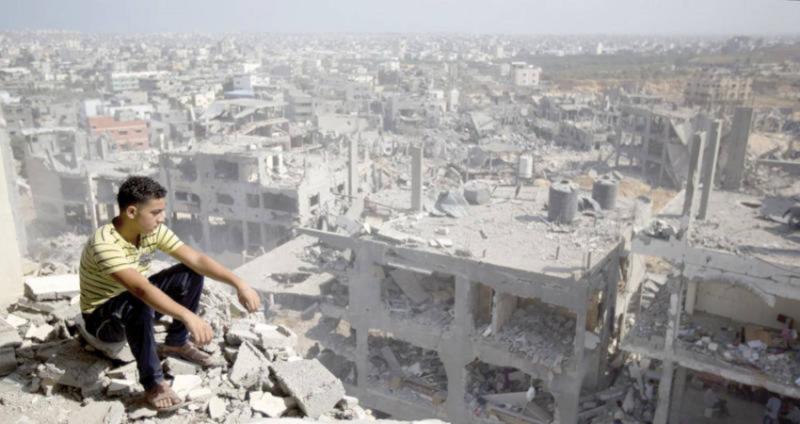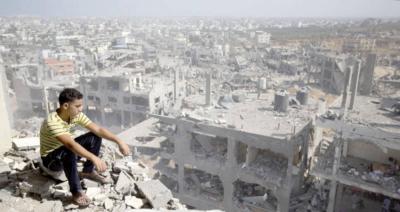Residents of Gaza City and the Jabalia refugee camp are suffering from a siege upon a siege after being isolated from the rest of the Gaza Strip and surrounded by Israeli forces following three weeks of blockade and bombardment of the entire region. Residents anticipate a fierce battle in their neighborhoods, with insufficient electricity or fuel and only a few hospitals remaining operational amid relentless airstrikes and artillery shelling.
Abu Abdullah, who lives in Gaza City, stated, "No one sleeps with the shelling. My children keep jumping and crying with every airstrike." He has taken refuge in the Jabalia camp with relatives after his home was bombarded in Gaza City. He continued, "We are now besieged, but we are in our homeland," accusing Israel of waging a war of starvation against the people of Gaza.
A video obtained by Reuters showed the aftermath of today's attack on Beit Lahiya near Gaza City, revealing bloodstained and dirt-covered bodies, as well as the extraction of an infant from an ambulance. It also displayed paramedics examining injured individuals lying on the hospital floor in pain.
Israel cut off fuel and electricity supplies to Gaza immediately after the attack on October 7, and health authorities in Gaza stated that most medical services may soon fail. Israel claims that Hamas has taken fuel from hospitals. Food and medical supplies that come through the Rafah border crossing with Egypt have only reached the southern parts of Gaza since last week.
Abu Abdullah said over the phone that food is an issue and that water is an even greater problem; there is no fuel or electricity aside from a few hours provided by solar panels.
In the southern parts of the Strip, the lack of clean water has led many people to start using seawater for bathing and cleaning, and the overcrowded hospitals coupled with fuel shortages mean doctors face immense difficulties in assisting patients and the injured.
On the beach in Deir al-Balah, located between Gaza City and the main southern city of Khan Younis, a group of children scooped up water from the sea while men washed cooking utensils. Alaa al-Bardini, a resident of Deir al-Balah, explained that the children bathe in salty seawater because there is no fresh water to clean their bodies from the salt.
Israel claims it has restored water supplies to southern Gaza after initially cutting them off. However, residents say there is almost no water available, and without electricity, people cannot operate pumps to draw water from wells or lift it into their homes.
Long lines are forming outside bakeries, with people waiting for hours to obtain small quantities of bread. Hussein Al-Nadi, standing in front of a bakery in Khan Younis, stated he has been waiting since dawn to get bread and that the situation has become unbearable.
As hospitals fill up, Dr. Hassan Zain al-Din has begun visiting United Nations schools that are accommodating thousands of displaced individuals. With a lack of fuel, he travels a 15-kilometer route by bicycle. Zain al-Din noted that the bombardment has damaged some parts of the road, forcing him to carry his bike over the damaged sections before resuming his journey.




